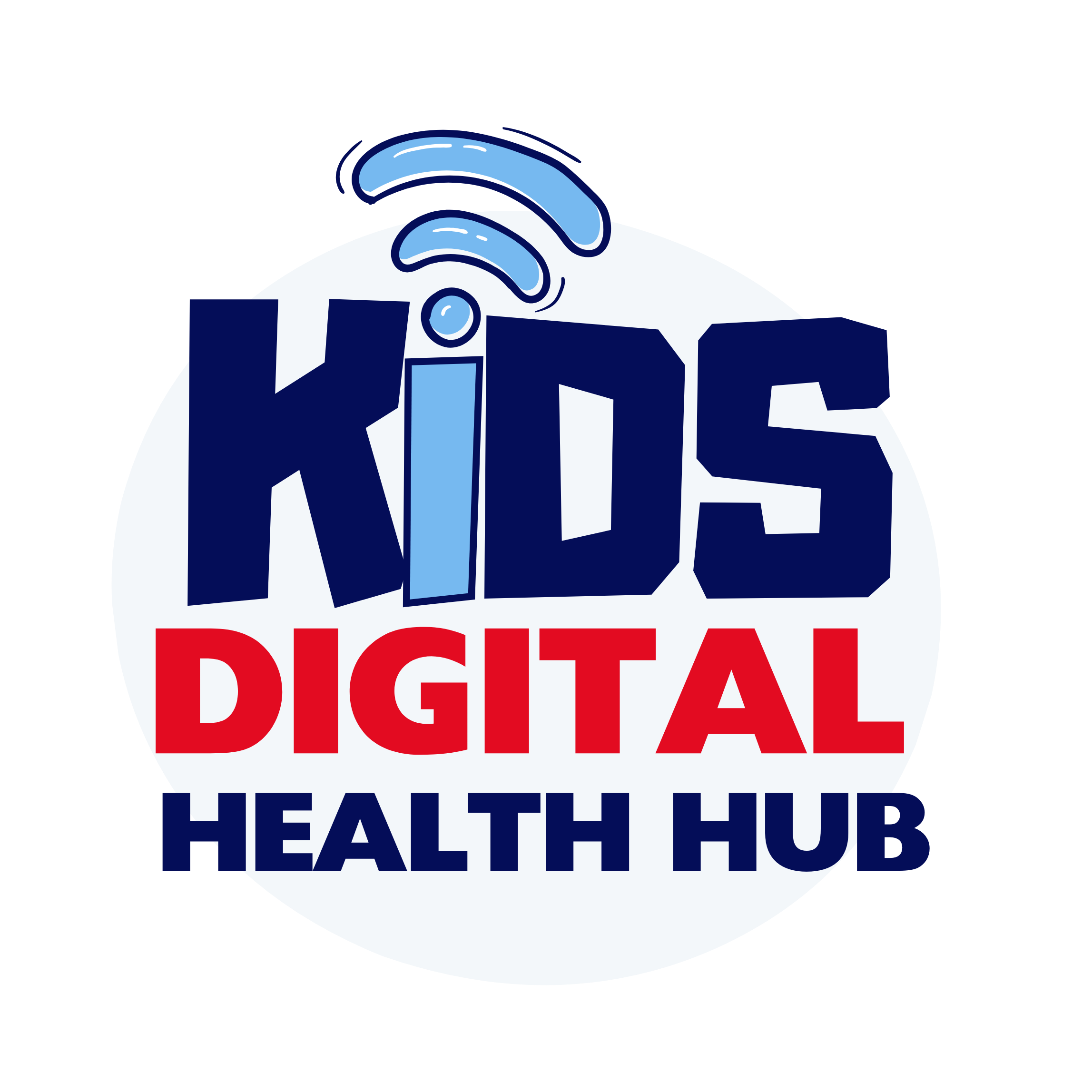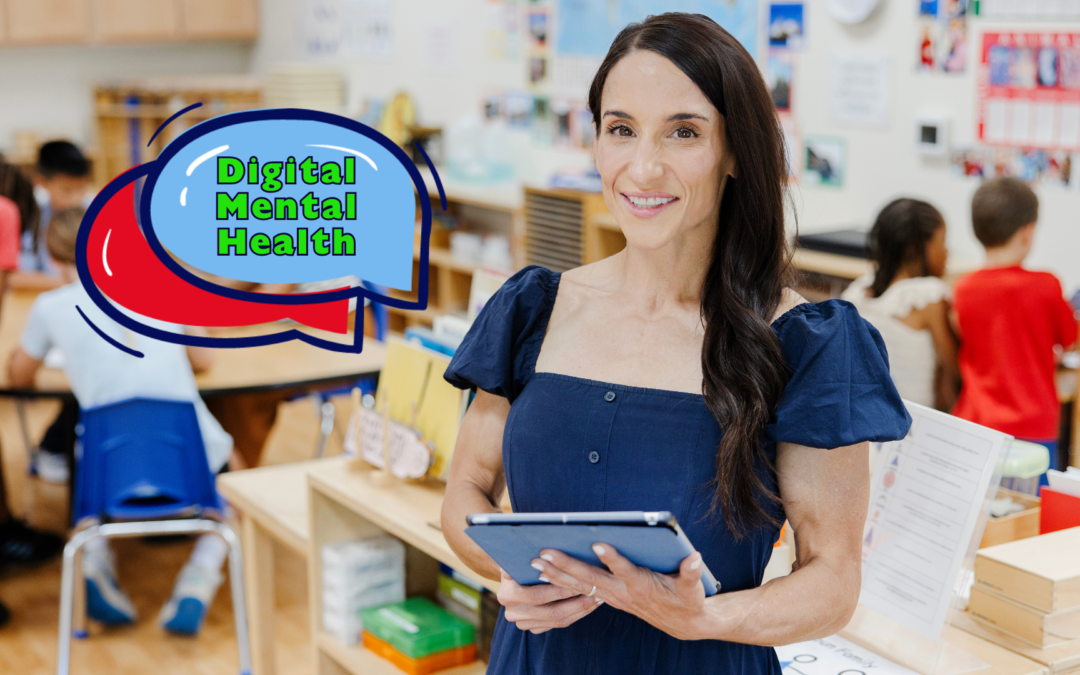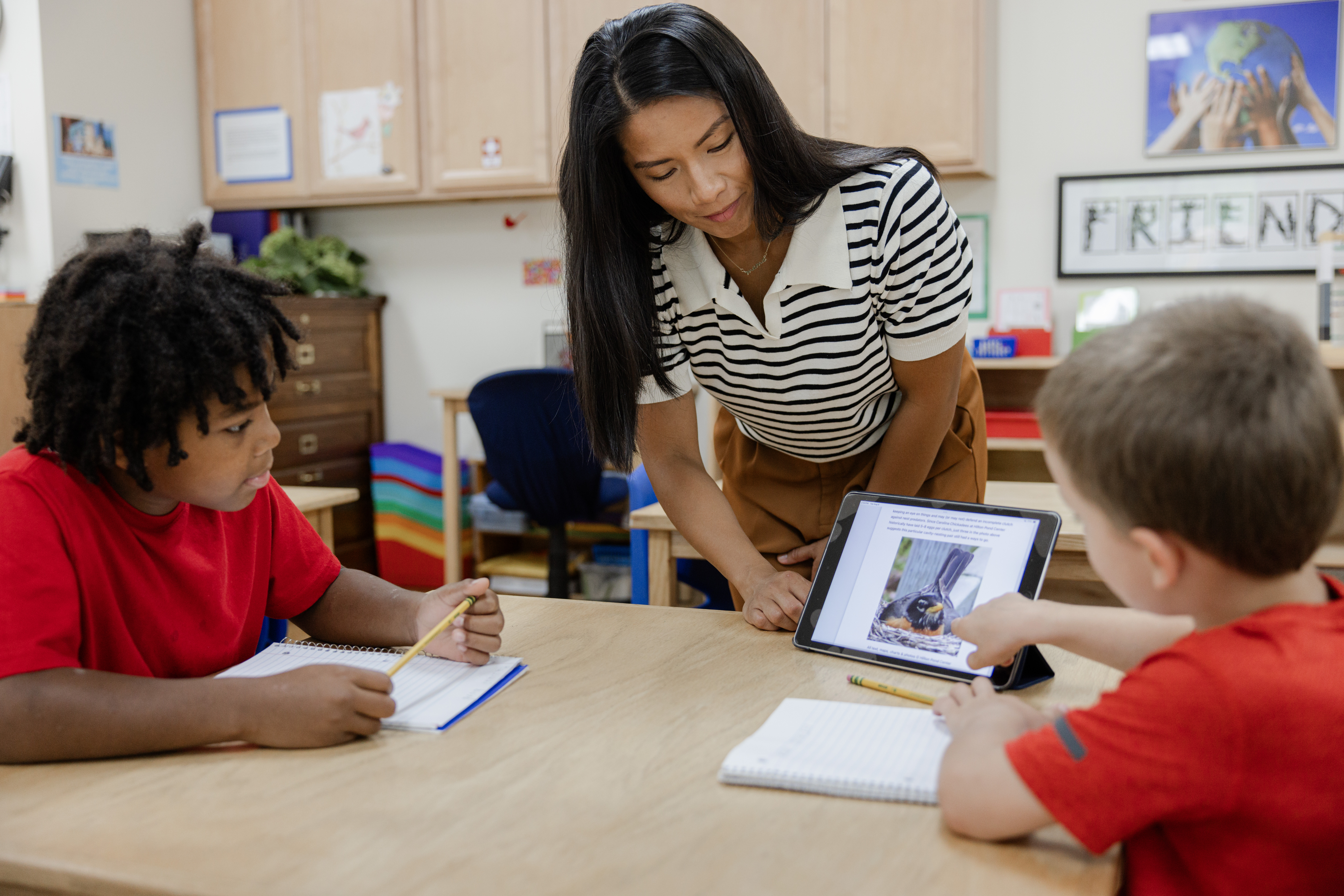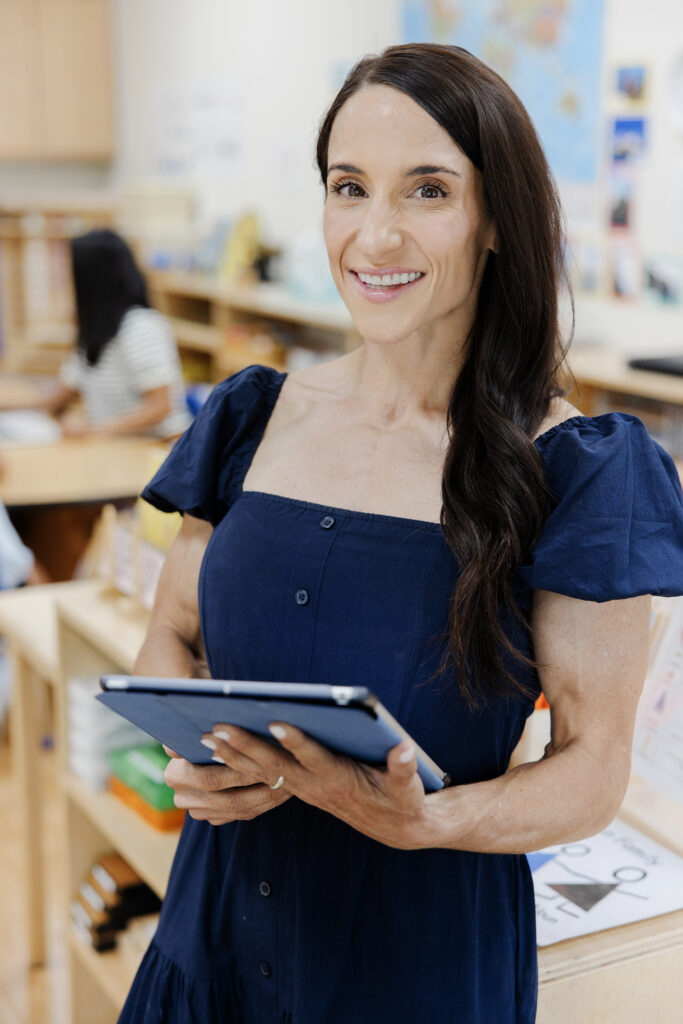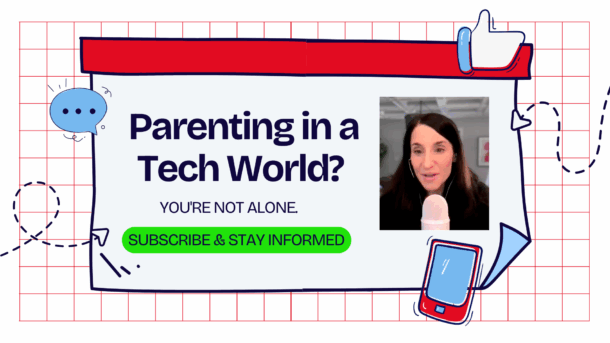Welcome to Kids Digital Health Hub, a community born from a mother’s journey from nursing to digital advocacy. Our mission is to empower parents and educators in navigating the complexities of children’s digital well-being and digital mental health. Founded by a dedicated mom who transformed her healthcare insights and parenting experiences into a passionate crusade for safer, healthier digital interactions, KDHH stands as a beacon of support. We are committed to fostering a balanced relationship with technology for children, combining expert guidance with community-driven solutions to ensure our kids thrive in the digital age. Join us in this vital mission to protect and nurture the next generation.
By exploring the origins and motivations that fueled the creation of the Kids Digital Health Hub, the article aims to shed light on the innovative solutions and strategies being employed to address digital mental health challenges among children. With a collection of insightful stories and practical examples, readers will get a clear sense of how the hub is playing a role in creating a healthier digital space for kids.
Table of Contents
Balancing Screen Time: Safeguarding Children’s Mental Health in the Digital Age
In today’s technology-driven world, the rise of digital devices in every aspect of our lives has sparked an escalating concern about digital mental health, especially among children. With kids spending more time on screens than ever before, parents and educators are increasingly worried about the implications for mental well-being.
Studies indicate a link between excessive screen time and various mental health issues, such as anxiety and depression, urging stakeholders to reevaluate the balance between digital engagement and mental wellness. This growing concern underscores the critical need for resources and solutions that promote a healthy, balanced approach to technology use for children.
The Kids Digital Health Hub emerges as a proactive initiative designed to address the pressing digital mental health challenges faced by children today, providing valuable resources, guidance, and innovative solutions to foster a healthier relationship with technology.
Not An Expert: Just A Mom
I do not claim to be an expert on all things in this digital world, but what I can tell you is I’m a mom on a mission. I feel called to be here and I’m using my gifts to bring light to a dark and seemingly dismal place that often feels overwhelming and hopeless.
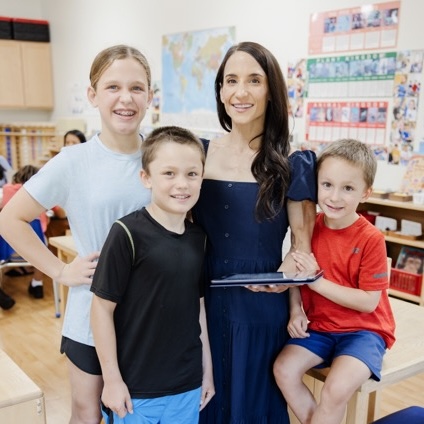
Why I Feel Qualified To Lead This Movement in Digital Mental Health
Before I was a mom I worked for over 5 years in nursing. Working in healthcare gave me a deeper understanding of the human body, specifically hormones, biochemical processes and the impact they have on our physical, mental and emotional states. I learned to appreciate the complexity of our bodies and brains. I loved learning and loved understanding how things worked and why we should choose or not choose to do something.
My career in healthcare was put on hold when I became a mother nearly 12 years ago. I set it aside to focus on raising babies. I wanted to give them the best version of myself and the best possible childhood, so I started learning about developmental milestones, attachment, brain development and all the things that could negatively and positively impact them. I wanted to control what I could and be the best mom possible.
I found myself surrounded by and frequently speaking with formidable clinicians on attachment, play therapy and psychosocial development. It was a time when ipads and smartphones were increasing in popularity and many were beginning to use the devices to entertain and “educate” their kids.
My daughter was all of 2 or 3 when the pressure began to use or depend on a device to soothe or entertain her…but it just didn’t sit right with me. I chose to abstain from screens. Not knowing why exactly but something in me told me to find alternative ways to entertain, teach or soothe her. I wasn’t judgemental and I didn’t condemn those who thought otherwise, but my momma gut just told me to do so…and I listened.
In 2016 I read the book “Glow Kids” and that book changed me. It took the feelings I had in my gut and confirmed all the reasons I felt the need to sit back and even restrict or prohibit her and her brother from using the ipad, video games and even forbid them from even freely grabbing my iphone. It was simply too addicting and too damaging to their young developing brains.
How I Was Called: My Personal Journey
For years we have maintained a screen light childhood. Of course, we have movie nights, they get tablets for long road trips to Colorado and have played an occasional video game with friends, for birthday parties at gaming places, and they even get to search on Amazon or online (with parental supervision) to make their birthday or Christmas list or even check the score of an NFL game or watch highlights.
But I know we are unique, and as my children have aged, I have come to realize that there is so much out there and so many complicated parts to navigating this digital world while protecting our kids that it’s far too scary to do this alone and there aren’t that many resources out there.
And what resources there are need to be further researched and even piecemealed together, leaving many unanswered questions and no one to really talk to! It’s such a lonely, scary and unavoidable reality we are all going to face …
Technology isn’t going away, and kids are still going to want to be a part of it.
- They should be (on some level), and we should help them, but how do we do so?
- And are parents supposed to take this all alone?
- What about community support or even schools?
- How are they approaching it and addressing it and where do my rules begin and end and how do they relate or intersect to those at school?
- What about their peers?
So many different points of entry, different rules and no clear boundaries and cohesion. So it often feels like we are isolated and even facing this alone.
I want better for us and our kids! I refuse to accept that they are the “anxious generation,” which is how we got to here.I found myself in a season where I was actively advocating for the protection of kids. I found myself (yes, little ole’ me) advocating for increased safety and demanding better care and protection of children, and I finally asked God what he wanted me to do.
I literally asked him…okay, God. I’m so passionate about protecting kids, educating and empowering parents, and creating hope and community, and if you want me to continue down this path and do something in the digital health landscape, then show me. Do something that helps me know you are calling me to be here. I’m scared but I’m going to trust what you are asking me to do, if this is what you’re asking me to do.
I had been working with Screen Sanity and loved their mission and their work, but felt like there was more to do. I felt and tried to do more with them, but they needed to stay focused on their objectives, which are amazing, but I felt they needed to expand and do more because as a parent I needed more than what they were able to provide….so again I asked God….show me you want me here and I will obey.
About 5 hours later I got a call to be on NPR and to talk about my stance on introducing or prohibiting social media with our preteen daughter. I nearly burst into tears.
Okay God, I’m listening.
Listen to the full NPR interview here.
/
Solutions and Strategies Offered by Kids Digital Health Hub
Holistic Curriculum: Digital Literacy and Well-being
The Kids Digital Health Hub offers a well-rounded and thoughtfully designed curriculum to tackle the diverse aspects of children’s digital literacy and well-being. At its heart, the curriculum focuses on guiding kids to navigate the digital world responsibly and safely. It includes a range of interactive modules that cover key topics like online privacy, recognizing and dealing with cyberbullying, and assessing the credibility of digital information.
But it doesn’t stop at just digital skills; it also promotes emotional intelligence and mindfulness to encourage balanced tech use. Through fun activities and lessons suited for their age, kids not only learn to handle their digital interactions but also gain the awareness needed to keep their mental and emotional health in check in a tech-heavy world. This comprehensive approach helps kids build the skills they need to thrive in the digital age while keeping their well-being in mind.
Age-Appropriate Programs: Tailoring to Developmental Needs
Children’s digital mental health needs and vulnerabilities vary a lot as they grow, so it’s crucial to offer programs that fit each stage of development. The Kids Digital Health Hub gets this and designs programs for different age groups, making sure every child gets guidance that suits their current cognitive and emotional stage.
For younger kids, the focus is on introducing basic digital concepts and safety rules through fun storytelling and interactive games that capture their imagination while teaching them the basics.
As they grow, the programs tackle more complex issues like online social dynamics, digital footprint awareness, and critical thinking skills, helping them understand the bigger picture of their digital interactions.
For teens, the curriculum becomes more advanced, offering insights into managing digital identity, navigating social media responsibly, and building digital resilience.
With this personalized approach, the Kids Digital Health Hub not only addresses the immediate digital challenges each age group faces but also prepares them for a safe and healthy digital journey throughout their lives.
Proactive Approach: Emphasis on Preventative Measures in Digital Mental Health
The Kids Digital Health Hub is all about taking proactive steps to handle digital mental health challenges faced by kids. Instead of just reacting to problems after they pop up, the hub puts a big focus on prevention, aiming to stop issues before they start.
This forward-thinking approach involves teaching kids, parents, and teachers about the risks of too much screen time, while giving them the tools and know-how to manage these risks.
By promoting awareness and readiness, the hub encourages everyone to get involved in creating safe digital practices and habits. The workshops and training sessions offered focus on early intervention and ongoing education, helping people build resilience and critical thinking skills that are key for maintaining digital health.
Overall, this proactive approach not only lowers the chance of mental health issues developing but also empowers kids to develop a balanced and positive relationship with technology from a young age.
